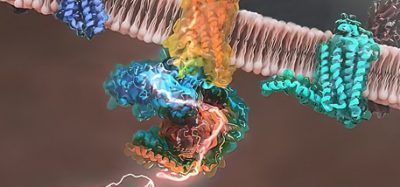Horizon and Redx sign cancer research collaboration
Posted: 3 September 2015 | Victoria White
Horizon and Redx have announced a new research collaboration to progress Redx’s pan-RAF inhibitor programme, for out-licensing in oncology indications…

Horizon Discovery Group and Redx Pharma have announced a new research collaboration to progress Redx’s novel pan-RAF inhibitor programme, for out-licensing in oncology indications including colorectal cancer.
Redx’s pan-RAF inhibitor programme has identified next generation novel small molecule inhibitors of RAF kinases as potential treatments for colorectal and other potential cancers. These next generation pan-RAF inhibitors have been designed to overcome resistance mechanisms seen with first generation RAF inhibitors in colorectal cancer. As part of the collaboration, Horizon will deploy its gene editing, cell line and drug discovery technology platforms and know how to help explore the mode of action of Redx’s pan-RAF inhibitors and support Redx as it seeks to rapidly move this rare class of compounds towards partnering.
Under the terms of the agreement, Horizon and Redx will bear costs proportionate to respective research activities. A future pharmaceutical partnering deal is expected to deliver a material return to Horizon on its investment from any upfront payment, a share of future milestones and a share of future product royalties.
Partnership will allow Redx to detail the effects of its pan-RAF inhibitors at a molecular level
Dr Darrin M. Disley, Chief Executive Officer of Horizon Discovery Group, commented, “Horizon’s expertise throughout the drug discovery and development continuum, from genomic sequence to patient treatment, enables pharmaceutical and biotech companies to address the challenges and hurdles that could prevent them from realising the potential of their promising drug candidates.”
Neil Murray, Chief Executive of Redx Pharma plc, commented, “Our pan-RAF inhibitor programme is dealing with novel biology and is at a very interesting point. Our partnership with Horizon will enable us to detail at molecular level the effects of our pan-RAF inhibitors and help to progress this very promising programme as we seek to secure a license partner for this asset.”
Related topics
Drug Discovery
Related organisations
Cancer Research, Horizon Discovery Group, Redx Pharma







